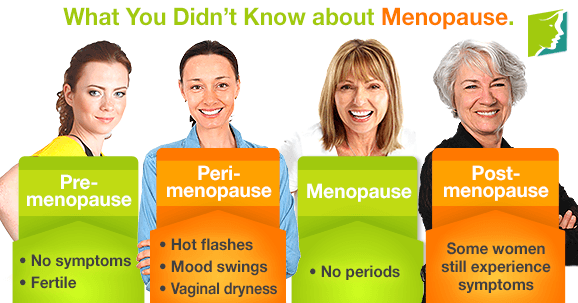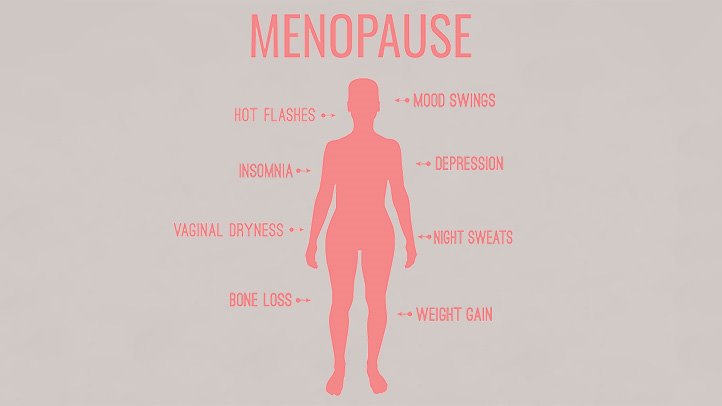
By Krishna Delvadiya PHT
1. What is menopause?
Menopause is a point in time 12 months after a woman’s last period. This means you have not had any bleeding, including spotting, for 12 months in a row.
2. When does menopause usually happen?
The average age of menopause in the United States is 52. The range for women is usually between 45 and 58. One way to tell when you might go through menopause is the age your mother went through it. Menopause may happen earlier in the following situations:
- Never had children – More than one pregnancy may delay menopause.
- Smoking – Studies show that smoking can cause you to start menopause up to two years earlier than women who don’t smoke.
- Having undergone chemotherapy or surgery to remove both ovaries.

3. When does the transition to menopause usually start?
Perimenopause or the menopausal transition is the time leading up to your last period. The menopausal transition most often begins between ages 45 and 55. As your body transitions to menopause, hormone levels may change randomly, causing menopause symptoms unexpectedly.
4. How long does the transition to menopause last?
Perimenopause can last between two and eight years before your periods stop permanently. For most women, this transition to menopause lasts about four years.
5. How will I know if I am starting the transition to menopause?
Sometimes it can be hard for you and your doctor to tell whether you are in perimenopause. It can be identified by the following:
- Symptoms – You may get one or more menopause symptoms such as hot flashes, trouble sleeping and mood swings, just to name a few.
- Irregular periods – Track your periods. Irregular periods may be your first sign of menopause.
- Hormone levels – The body begins to undergo several changes in response to lower levels of estrogen, progesterone, testosterone, follicle-stimulating hormone (FSH) and luteinizing hormone (LH).
6. How will menopause affect me?
Symptoms of menopause may begin suddenly and be very noticeable, or they may be very mild at first. A woman may experience the following:
- Irregular Menstrual periods – Periods might stop for one or more months and then start up again.
- Periods might be heavier or lighter than before.
- Hot flashes and problems sleeping.
- Mood swings or being irritable.
- Vaginal dryness.
- Sex may be uncomfortable or painful.
- Less interest in sex or it may take longer for you to get aroused.
- Joint pain.
- Cognitive changes such as memory loss.
Other possible changes are not as noticeable. For example, you might begin to lose bone density because you have less estrogen. This can lead to osteoporosis, a condition that causes bones to become weak and break easily. Changing estrogen levels can also raise cholesterol levels, weight gain, slow metabolism and increase your risk for heart disease and stroke.

7. Should I continue using birth control during the transition to menopause?
Yes. You can still get pregnant during perimenopause, the transition to menopause, even if you miss your period for a month or more. During perimenopause you may still ovulate, or release an egg.
*Talk to your doctor about your birth control needs and birth control methods.

8. What happens after menopause?
After menopause you will no longer be able to get pregnant and you will no longer get a period. If you have any type of vaginal bleeding after menopause, you should see a doctor as soon as possible. Vaginal bleeding after menopause is not normal and can mean that you have a serious health problem.
9. What are the long term consequences of menopause?
- Bone loss (osteoporosis)
- Increased risk of cardiac diseases due to a change in lipid profile
- Change in body composition (weight gain)
- Impaired balance
10. Physiotherapy plays a major role on the early and long term effects of menopause in the following ways:
- Helps you build your muscular strength and flexibility.
- Guides you with exercises to help improve your balance and coordination.
- Pelvic floor physiotherapy helps alleviate pelvic floor pain, incontinence, prolapse and coital issues.
- Improving your overall quality of life.




 6525 Decarie boulevard, Suite 217
6525 Decarie boulevard, Suite 217 